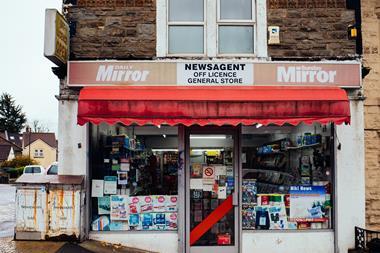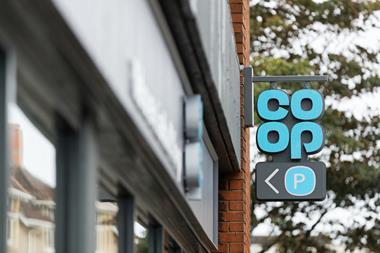Analysis by Sarah Hardcastle
If you think things couldn't get any harder in the cigarette and tobacco market, then brace yourself this year they'll be getting even tougher. Advertising could be banned. Forestalling has been quashed, which will mean lower profits for everyone. And the government is sticking with its high tax regime a policy that's opened the floodgates to smuggling, so killing off legitimate sales and speeding the closure of community stores.
Just before Christmas the government announced plans for a bill banning tobacco advertising, one of Labour's manifesto commitments. It follows the collapse of a European Union directive banning advertising, promotion and sponsorship, scuppered last autumn by the European Courts of Justice. The government is likely to put pressure on getting the legislation rushed through before May, when a general election is anticipated, as it will be seen as a vote-getter.
Tobacco manufacturers are resigned to a ban. "It's a question of when, not if," says Imperial Tobacco sales director Geoffrey Couchman.
Just what the bill will contain is open to conjecture, but the Department of Health says it's likely to mirror the failed EU directive that would have banned billboard advertising by July 2001. Newspaper and magazine advertising would be banned by 2002 and sports sponsorship by 2003, with the exemption of world sports' such as Formula One motor racing which ceases in 2006.
A big issue for retailers is whether or not the bill will seek to ban tobacconist window displays, branded tobacco gantries and other instore promotional material visible from the pavement. The Association of Convenience Stores says it will fight to keep the status quo. "We want to retain gantries and have a sensible layout," says public affairs spokesman James Lowman. "Not everything will be banned, but it will be a matter of compromise."
Already, manufacturers are gearing up to the anticipated clampdown by rushing out new products and stepping up advertising. In the last two months, Imperial Tobacco has brought out a make your own cigarette system, a filter cigar, and a low cost cigarette. They will be substantially supported to give them a headstart. "Only the big brands will survive in the long run," says Couchman.
Rothmans has introduced a Marlboro menthol variant, supported to the tune of £3m, and new pack sizes for its economy Royals brand. Gallagher's activity includes a poster advertising campaign for Camel, running to mid-January.
Forestalling the practice of bulk ordering at pre-Budget prices for sale at post-budget duty increases is now outlawed, replaced by a quota system. Its abolition takes a substantial profit source out of the supply chain (see The Grocer's major analysis of this issue in our December 16 2000 issue).
Rothmans public affairs spokesman Mike Belcher says: "Everyone will lose out, manufacturers, distributors, retailers and consumers, who will no longer be able to benefit when pre-Budget prices get passed on post budget. Potentially prices could go up."
Date-marking of packs with a Not to be sold after' mark a measure that would have incurred huge costs in the return of out of date products is a dead issue, at least for the time being.
Going through the EU at the moment is a proposal to increase the health warning to 30% on the pack front (currently 6% in the UK) and 40% on the back. Terms such as light', ultra-light' and mild' may also be prohibited as product descriptions. Cigarette tar levels may also be cut.
But the biggest issue, without question, is the soaring tax on tobacco, the highest in the world, accounting for 80% of the retail price of premium cigarettes, and over 90% of the cheapest brands. Introduced with the exemplary aim of curbing smoking, the high tax regime has been a complete failure, succeeding only in generating a mammoth black market in smuggled products. One in three cigarettes and 80% of hand rolling tobacco sold in the UK is non duty paid.
The cost in financial and human terms is enormous: an estimated £4bn lost in government revenues, an increase in smoking stimulated by cheap smuggled products, and uncontrolled sales through outlets such as car boot sales providing opportunities to sell to children. Retailers are also paying dearly, losing £49,000 a year each on average due to smuggling, according to the Tobacco Alliance, plus a drop in footfall. Closures are increasing as a result. Imperial, which monitors them, says 200 independents a month are going out of business.
Government response has been to provide more resources to Customs & Excise to catch smugglers at entry ports. It has also introduced the duty paid mark on cigarettes and handrolling tobacco, but manufacturers and retailers feel these will do little to curb smuggling.
"It's shutting the door after the horse has bolted," says Wholesale Confectioners & Tobacco Alliance public affairs spokeswoman Kate Nichols. "All it'll do is make identification of smuggled stock easier, but it won't remove the incentive to smuggle. The only real solution is to cut the high levels of duty."
So far the government won't budge on this. "They won't even talk to us," says Imperial's Couchman.
The high duty has had a profound effect on the nature of the £12bn market, forcing smokers to switch to cheaper brands, smaller pack sizes and roll-your-own products to save money.
The main growth in cigarettes is coming from ultra low price brands, led by Imperial's Lambert & Butler and Richmond Superkings, Gallaher's Mayfair and Sovereign, and Rothman's Royals. This year, sales of these products overtook low price cigarettes for the first time. With duty rising, ultra low price brands are expected to account for a third of total UK sales within two years. Predictably, premium priced brands are seeing a fall-off in sales as smokers downtrade. Similarly, sales of 10s are rising at the expense of 20s and are expected to account for 20% of sales in the next two years.
Sales of miniature cigars are increasing but for health reasons. People are switching to them to try and cut down on smoking.Miniatures are expected to grow strongly over the next two years in contrast to the rest of the cigar sector which is declining.
Handrolling tobacco is booming the number of users has doubled in the last decade as roll your own has become the cheapest method of smoking. Although the sector is still male dominated, a quarter of users are women. Growth has led to a spate of NPD, such as Gallaher's Amber Leaf piece-pack', an all-in-one format for occasional smokers.
{{FOCUS SPECIALS }}
Close menu
- Home
- Retail & Wholesale
-
Products & Suppliers
- Back to parent navigation item
- Products & Suppliers
-
Product Categories:
- Back to parent navigation item
- Product Categories:
- Alcoholic drinks
- Bakery
- Cereals & breakfast
- Cheese
- Chicken & poultry
- Chocolate
- Confectionery
- Crisps, nuts & snacks
- Dairy
- Fish
- Fresh produce
- Frozen
- Household
- Meat
- Own Label
- Sauces & condiments
- Seasonal
- Soft drinks
- Vaping
- Vegan & plant-based
- World foods
- Suppliers
- People
- Reports & Data
-
Topics A-Z
- Back to parent navigation item
- Topics A-Z
-
Popular topics:
- Back to parent navigation item
- Popular topics:
- Cost of living crisis
- Crime
- Deposit Return Schemes
- Finance
- Government & Regulation
- Health
- Inflation
- Loyalty
- Marketing
- Mergers & Acquisitions
- New Product Development
- Sourcing
- Supply chain
- Sustainability & environment
- Technology
- Ultra Processed Foods
- Vaping
- A-Z all topics
- Content by type:
- Events
- Ask iA (beta)
- Subscribe now
Sign in to comment on this article
Not logged in before? Register for FREE guest access today.
You will be able to:
- Read more stories
- Receive daily newsletters
- Comment on stories
Advert



















No comments yet